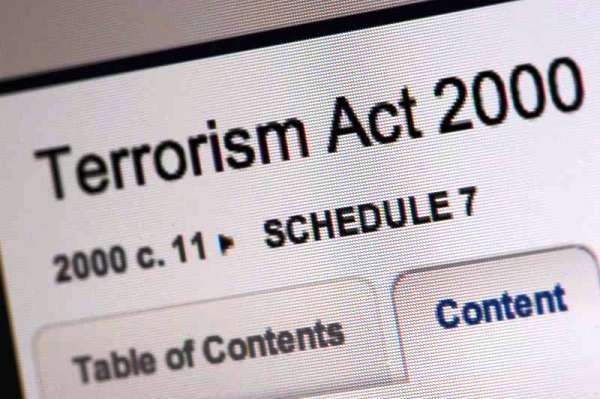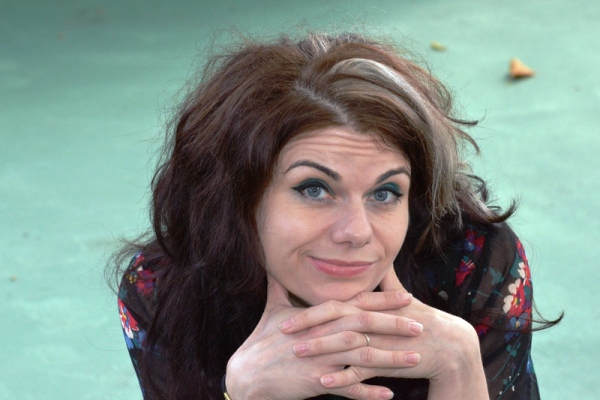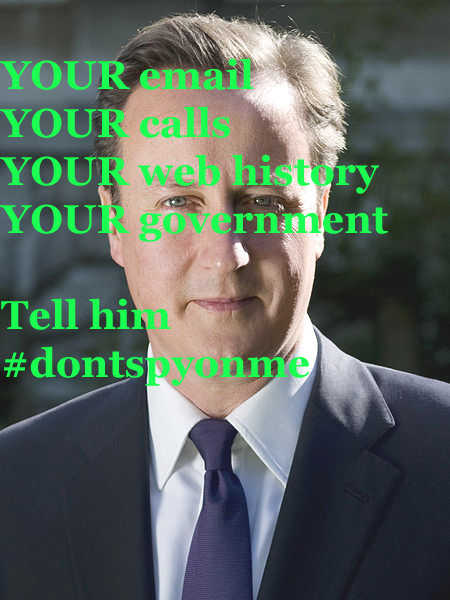17 Sep 2013 | Comment, News and features, Politics and Society, United Kingdom
In a move that may have left a few people slightly confused, the Daily Mail has published an editorial in support of the BBC.
The Mail’s traditional antipathy to the BBC notwithstanding (“its monstrous bureaucracy, its unthinking profligacy with licence fees, its manifold editorial misjudgements or its all-pervading soft-Left bias”), the paper is critical of suggestions that the corporation’s oversight body, the BBC Trust, should have its functions transferred to communications regulator OfCom and the National Audit Office. The Trust has faced criticism as excessive remuneration and severance packages have led to accusations of waste and cronyism.
So why on Earth would the Daily Mail defend this?
For very obvious reasons actually. The Leveson report of 2012 suggested that, should a self-regulatory body established by the press fail to meet the criteria set out by the Lord Justice, OfCom could step in as a “backstop” regulator.
If as the Mail’s editorial suggests in regard to BBC budgeting, “It is simply not safe to entrust such power to a quango answerable to MPs, with their vanity, partisan agendas and propensity to bear grudges.”, then surely the self same proprietors of all that vanity, partisanship and grudgery should not be allowed even the slightest control over the free press.
So what’s the Mail’s solution for the BBC?
Surely it cannot be beyond the wit of man to devise a genuinely independent regulator, with the authority to ensure value for money and true impartiality.
We’re not necessarily just talking about the BBC here, are we?
Meanwhile last week David Cameron, resplendent in new reading glasses, told the Commons Liaison Committee he feared an “impasse” in progress on press regulation. While voicing support for a cross-party Royal Charter regulatory proposal rather than the alternative suggested by the majority of the newspapers, Cameron suggested that the leaders of the other main parties, as well as the press, may need to give some leeway in negotiations:
“To be clear I am committed to the cross-party charter. We all signed it, we agreed it. We should progress it but it would be good if we could find some way for everyone to see that it would be better if you ended up with a cross-party charter that the press seek recognition with. But it is a cross-party issue so this is something all party leaders have to address.”
Professor Brian Cathcart of Hacked Off, the group campaigning for the imposition of the Royal Charter, claimed in an article for Huffington Post that the idea of an “impasse” had been planted in the prime minister’s head by newspaper editors, declaring “There is no impasse; there is a process.”
But in which direction we are to proceed may still be up for grabs.
20 Aug 2013 | News and features
 I don’t have a problem with sending journalists to gaol.
I don’t have a problem with sending journalists to gaol.
Sometimes we break the law, and sometimes we do it in ways that are not defensible as being in the public interest, or for reasons that are not related to our journalism. I also think it’s okay for the police to detain and question journalists, as they may anyone else. I work on the assumption that we should all, as citizens, respect the rule of law and act within legal constraints – a big part of any journalist’s training covers legal issues around contempt, defamation, confidentiality and copyright.
I don’t even want special protection under the law as a “journalist” because then someone has to decide who counts as one, and as we’ve seen in the UK with the debate over the Leveson inquiry, that quickly ends up with some sort of state-approved licensing mechanism which none of us would find acceptable.
If there is to be protection then it should cover “acts of journalism”, no matter who commits them, and it should by and large rely on case law established by brave people taking risks to make information public and then defending their actions, also in public. As a working journalist I’m prepared to make promises to sources that could result in my spending time in prison, and I respect those of my colleagues who have put themselves on the line to establish the boundaries of acceptable journalistic practice.
Unfortunately, while we in the press have by and large played fair, it’s now clear that the state hasn’t. The revelations about the way the NSA and GCHQ operate have confirmed the view that many agents of the state either consider themselves outside the law or feel confident that the laws have been written to allow them to act in the ways they wish. They make it impossible to respect the law as it stands, and impossible to argue that we as citizens must simply obey laws that have been written to take away our liberty, our freedom to speak without being monitored, and our ability to act to change the world for the better whether by speaking truth to power, telling the world what is really going on, or campaigning in the streets and online to reform laws and practice.
This week’s detention of David Miranda under the UK’s Terrorism Act is a defining point. Miranda may have been carrying digital copies of secret documents made available to Laura Poitras and his partner Glenn Greenwald, but that does not make him a credible suspect in an investigation into terrorism, except to a paranoid state whose laws have been written to allow the security services unfettered power to detain and investigate anything they consider threatening.
But of course, that is what we have. Here in the UK the word “terrorism” has been stripped of all meaning so that it can routinely be used to cover any activity that the state does not fully approve of, or anything that might disrupt the free operation of the security apparatus ostensibly built to protect us from that same “terror”.
As a result many activities, from campaigning to marching to writing to helping uncover a vast, illegal conspiracy to surveil and monitor the entire internet, is covered by provisions of anti-terror legislation passed by frightened legislators willing to be persuaded that such draconian powers would only be used against clearly wicked people planning clearly horrible acts of mass murder. They were unable or unwilling to foresee that it would be used to hound journalists or those working for newsgathering organisation or that it would be used to justify oppression of anyone who stands out against any government policy. This is the security state, and while we may have watched it being assembled brick by brick in the last decade, the final brick snapped into place this week.
It is time for us to call on Obama, Cameron, Clegg and the other architects of oppression to “tear down this wall“. And yes, the irony of finding that I need to quote Ronald Reagan has not escaped me.
Bill Thompson is a writer and broadcaster. This post was originally published at The Bill Blog
2 Aug 2013 | Digital Freedom, News and features, Politics and Society, Religion and Culture

Writer Caitlin Moran (Image Demotix/Ken Jack)
Times columnist Caitlin Moran’s blog post on Twitter, threats and free speech this morning has gone viral. As I type, the page has crashed due to traffic overload, and apparently taken the entire Random House website with it.
The past week, online at least, has been dominated by discussions of misogynist abuse and threats on Twitter. I’m fighting a losing battle here in trying not to refer to this behaviour as “trolling”, but I think it’s still important to call abuse and threats what they are, rather than giving them a whole new category because they occur online. Calling it “trolling” undermines both trolling itself, in some ways a noble tradition, and what’s actually happening, which is women being threatened with rape by strangers.
Moran explains the exhausting and scary feeling of being attacked on Twitter, and the despair of being told that nothing can be done about it.
She goes on to quote Telegraph tech blogger Mic Wright, who earlier this week suggested that “This isn’t a technology issue – this is a societal issue”, suggesting he was simply dismissive of the idea that something should be done about misogyny online. Mic’s a friend, and a thoughtful writer. I don’t think he’s nearly as off-hand as Moran suggests, but I’ll leave it to you to read what he actually wrote. (While you’re at the Telegraph site, read Marta Cooper’s excellent piece as well)
Moran suggests “a fairly infallible rule: that anyone who says ‘Hey, guys – what about freedom of speech!’ hasn’t the faintest idea what ‘freedom of speech’ actually means.”
This, I’m afraid, is where it gets personal. As someone who may as well change his name by deed poll to “Hey, guys – what about freedom of speech!”, I can’t help feel Moran’s talking about me. And I think I’ve been a bit more considered, even while shouting about free speech.
Moran says:
“There is no such thing as ‘freedom of speech’ in this country. Since 1998, we’ve had Article 10 of the European Convention on “freedom of expression”, but that still outlaws – amongst many things – obscenity, sedition, glorifying terrorism, incitement of racial hatred, sending articles which are indecent or grossly offensive with an intent to cause anxiety or distress, and threatening, abusive or insulting words like to cause harassment, alarm or distress.”
Well, kind of. Article 10 of the European Convention on Human Rights says this:
1. Everyone has the right to freedom of expression. This right shall include freedom to hold opinions and to receive and impart information and ideas without interference by public authority and regardless of frontiers. This article shall not prevent States from requiring the licensing of broadcasting, television or cinema enterprises.
2. The exercise of these freedoms, since it carries with it duties and responsibilities, may be subject to such formalities, conditions, restrictions or penalties as are prescribed by law and are necessary in a democratic society, in the interests of national security, territorial integrity or public safety, for the prevention of disorder or crime, for the protection of health or morals, for the protection of the reputation or rights of others, for preventing the disclosure of information received in confidence, or for maintaining the authority and impartiality of the judiciary.
(Part 2 is kind of depressing, isn’t it?)
What Moran categorises as being outlawed by Article 10 are in fact various other laws, most of which have been around in some form or other long before the 1998 Human Rights Act which established the ECHR in UK law. Laws such as the Communications Act and the Public Order Act which, Lord knows, have their problems, not least for social media users. Ask Paul Chambers.
Moran then says:
“As you can see, if you are suggesting that you are allowed to threaten someone on Twitter with rape or death under “freedom of speech”, then you do not – as predicted – have any idea what “freedom of speech” means. Because it’s prosecutable.”
Two things: One, I’m not sure anyone really has been shouting “free speech for rape threats”. Two, it is possible to shout “freedom of speech” even when things are prosecutable. In fact, it’s what free speech campaigners such as Index, English PEN and Article 19 spend most of our time doing. All governments protect free speech “within the law”. Usually, the law is the problem, as we’ve seen with issues from England’s libel laws right up to Russia’s brand new anti “gay propaganda” law.
Moran identifies a certain cynicism in people who say abuse and threats are simply part and parcel of the web (“NOTHING CAN CHANGE. THE INTERNET JUST IS WHAT IT IS!”) saying what they really mean is that they don’t want things to change.
This strand certainly exists. The old-style keyboard warrior who thinks the web is strictly for arguing and not cat videos and getting strangers to help you with the crossword, or generally doing nice things and learning more about other people and places. The internet, for them is SERIOUS BUSINESS, and girls and pansies who can’t take the heat should get out of the kitchen. Or go back to the kitchen. Definitely something about kitchens.
But there is also a good reason to be wary, or at least hesitant, about calls for changing the web. A lot of time spent defending free speech is not actually about defending what people say, but defending the space in which they can say it (I’ll refrain from misquoting Voltaire here). It may be idealistic, but we genuinely believe that given the space and the opportunity to discuss ideas openly, without fear of retribution, we’ll figure out how to do things better. Censorship holds society back. In fact, it’s the litmus test of a society being held back.
When the cry goes up that “something must be done”, it’s normally exactly the right time to put the brakes on and think very hard about what we actually want to happen. The web is wonderful, and possibly the greatest manifestation of the free speech space we’ve ever had, but it’s also susceptible to control. Governments such as those in China and Iran spend massive resources on controlling the web, and do quite a good job of it. Other states simply slow the connection, making the web a frustrating rather than liberating experience. Some governments simply pull the plug. The whole of YouTube has been blocked in Pakistan for almost a year now, because something had to be done about blasphemous videos. Last month David Cameron announced his plans to take all the bad things away, after the Daily Mail ran a classic something-must-be-done campaign against online porn.
There are, as Moran rightly points out, laws against threatening people with rape. Perhaps the police and the CPS should take these threats more seriously (I only say “perhaps” because I don’t know exactly what the various police forces have been doing about the various threats in the past week, not because I think it’s arguable that the police and CPS should take rape threats less seriously), but I’m wary of demanding more action on things that are already illegal. Some of the proposed Twitter fixes are interesting, but their implications need to be thought through, particularly how they could be used against people we like as well as people we don’t like.
After outlining her support for a boycott of Twitter on Sunday 4 August, Moran concludes:
“The main compass to steer by, as this whole thing rages on, doubtless for some months to come, is this: to maintain the spirit that the internet was conceived and born in – one of absolute optimism that the future will be better than the past. And that the future will be better than the past because internet is the best shot we’ve had yet for billions of people to communicate equally, and peacefully, and with the additional ability to post pictures of thatched houses that look ‘surprised.’”
On this, I agree absolutely. In fact, I pretty much wrote the same thing last week:
The current debate in the UK portrays the web overwhelmingly as the habitat of trolls, predators, bullies and pornmongers. And that, plus the police are watching too, ready to arrest you for saying the wrong thing.
I can’t help feeling that all this doom-mongering could be self fulfilling. If we keep thinking of the web as the badlands, that’s how it will be, like a child beset by endless criticism and low expectations. We need to talk more about the positive side of life online – the conversations, the friendships, the opportunities – if we’re going to get the most out of it.
We do need to protect and promote the good parts of life online. But we should be very careful of the idea that we can simply block out the negative aspects without having a knock-on effect. We’re in uncharted territory. The wrong turn could be very, very costly.

 I don’t have a problem with sending journalists to gaol.
I don’t have a problem with sending journalists to gaol.
